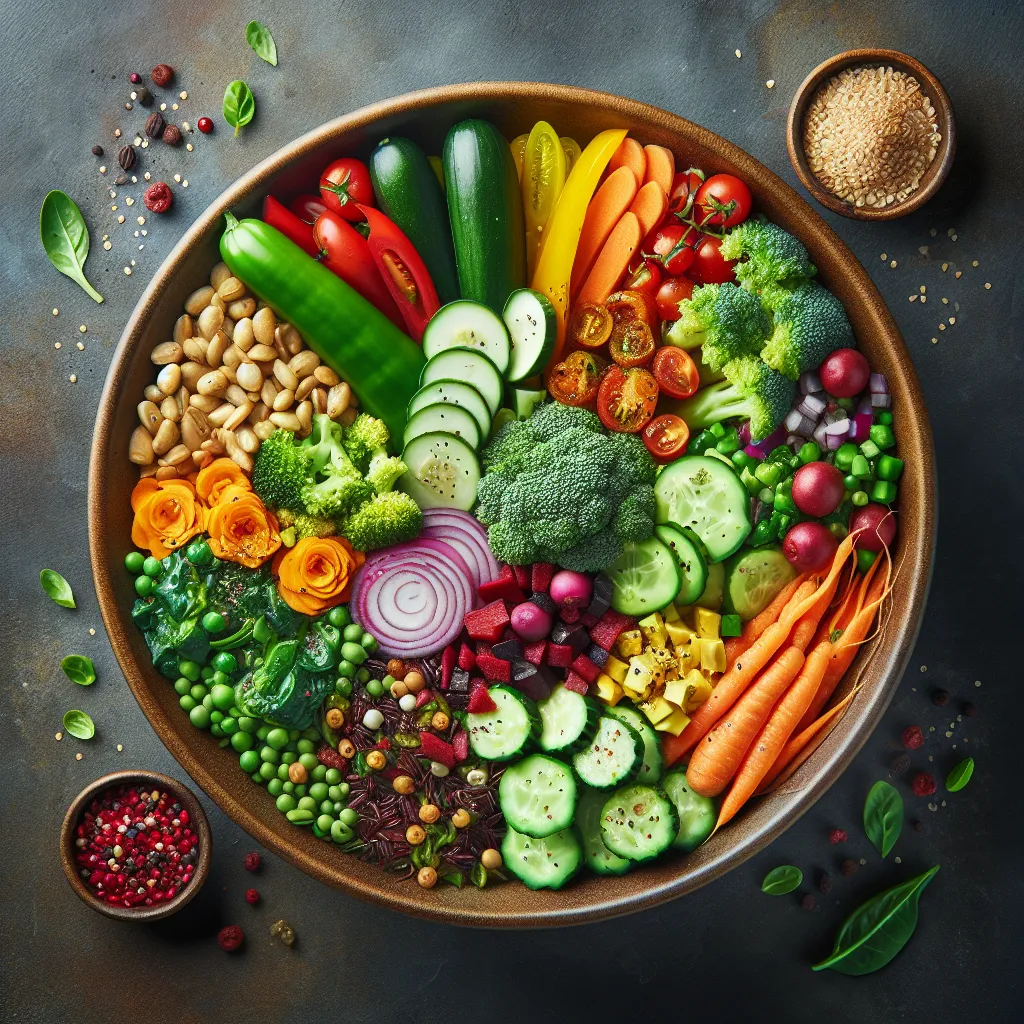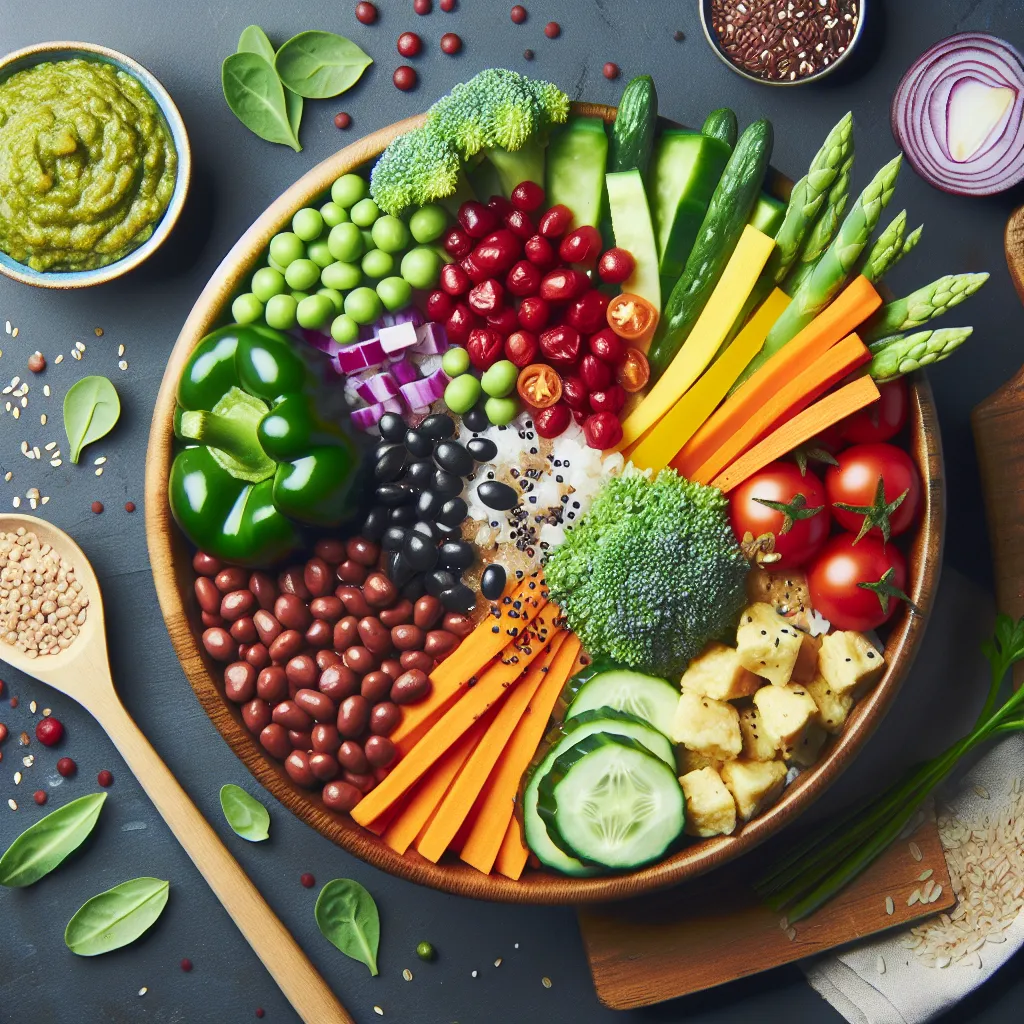Delicious Meat-Free Recipes to Try Today
Exploring the world of vegetarian cuisine opens up a delightful array of meat-free recipes that are both nutritious and satisfying. Whether you’re a committed vegetarian or simply looking to incorporate more plant-based meals into your diet, there are countless delicious options to try. Here are a few mouthwatering recipes to get you started:
1. Quinoa Stuffed Bell Peppers
These colorful and nutritious bell peppers are filled with a flavorful mixture of quinoa, black beans, corn, and spices. Topped with melted cheese and fresh cilantro, they make for a hearty and satisfying meal.
2. Lentil and Sweet Potato Curry
This fragrant and comforting curry is a perfect combination of protein-rich lentils, vibrant sweet potatoes, and aromatic spices. Served over steamed rice, it’s a deeply satisfying dish that’s perfect for a cozy night in.
3. Portobello Mushroom Burgers
Grilled portobello mushrooms marinated in balsamic vinaigrette and stacked with all the classic burger fixings make for a mouthwatering vegetarian alternative to traditional burgers. These substantial and flavorful burgers are sure to impress even the most devoted meat-eaters.
These are just a few examples of the tantalizing meat-free recipes waiting to be explored in the world of vegetarian cuisine. Whether you’re looking to expand your culinary horizons or simply enjoy a delicious and nutritious meal, there’s no shortage of delectable options to try today.
The Health Benefits of a Vegetarian Diet
Exploring the world of vegetarian cuisine opens up a world of health benefits that come with adopting a plant-based diet. Research has shown that vegetarian diets are associated with lower risks of heart disease, high blood pressure, type 2 diabetes, and certain types of cancer. The abundance of fruits, vegetables, whole grains, nuts, and legumes in a vegetarian diet provides essential nutrients, fiber, and antioxidants that are vital for maintaining overall health and well-being. Additionally, the lower intake of saturated fats and cholesterol in vegetarian diets contributes to healthier cholesterol levels and reduces the risk of cardiovascular diseases.
Furthermore, vegetarian diets have been linked to maintaining a healthy weight and reducing the risk of obesity. The emphasis on nutrient-dense, low-calorie foods in vegetarian cooking can support weight management and promote a healthy body mass index (BMI). Moreover, the increased consumption of plant-based foods can lead to improved digestion, increased energy levels, and a reduced risk of nutrient deficiencies.
Incorporating a variety of plant-based proteins such as tofu, lentils, quinoa, and nuts into a vegetarian diet can provide all the essential amino acids necessary for the body’s functioning. The diversity of plant-based proteins not only offers a sustainable source of energy but also supports muscle health and aids in post-exercise muscle recovery.
Embracing the world of vegetarian cuisine not only introduces a wide array of delicious flavors and culinary experiences but also brings a host of health benefits that can contribute to a long and vibrant life.
Global Influences on Vegetarian Cuisine
Exploring the world of vegetarian cuisine opens up a diverse and vibrant culinary landscape, shaped by global influences that have enriched the flavors and ingredients used in vegetarian dishes across cultures. The rise of vegetarianism and veganism has led to a growing awareness and appreciation of plant-based diets, resulting in the fusion of traditional flavors with modern culinary techniques.
Global influences on vegetarian cuisine can be seen in the incorporation of spices and ingredients from various regions. Indian cuisine, for example, has heavily influenced vegetarian cooking with its aromatic spices like cumin, coriander, and turmeric, as well as the use of legumes such as lentils and chickpeas. Similarly, East Asian cuisine has contributed with its emphasis on tofu, seaweed, and fermented soy products, adding depth and umami flavors to vegetarian dishes.
Middle Eastern cuisine has also made significant contributions to the vegetarian culinary world, with dishes like falafel, hummus, and tabbouleh becoming popular staples, showcasing the rich flavors of ingredients like chickpeas, sesame, and parsley. The Mediterranean region has brought its own flair to vegetarian cuisine, with an abundance of olive oil, fresh vegetables, and herbs creating a foundation for hearty and wholesome dishes.
Furthermore, the globalization of food trade has made exotic fruits and vegetables more accessible, allowing for the incorporation of diverse produce such as jackfruit from Southeast Asia, acai from South America, and yams from Africa into vegetarian menus worldwide. These global influences have expanded the range of ingredients available to vegetarian cooks, inspiring creativity and innovation in the kitchen.
In conclusion, the world of vegetarian cuisine is a testament to the rich tapestry of global influences that have shaped and elevated plant-based cooking. The fusion of flavors, techniques, and ingredients from around the world has resulted in a vibrant and exciting culinary landscape that continues to evolve and captivate the taste buds of food enthusiasts everywhere.




